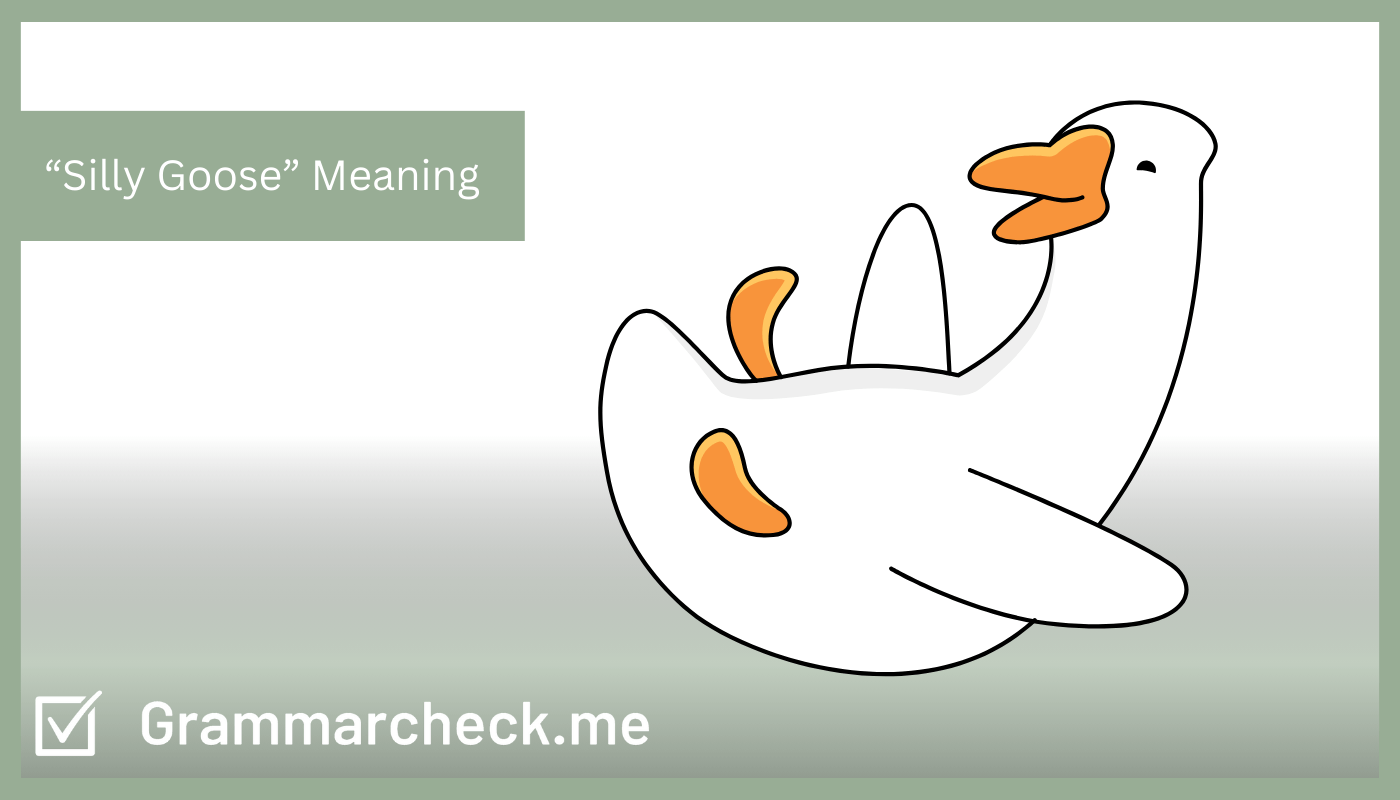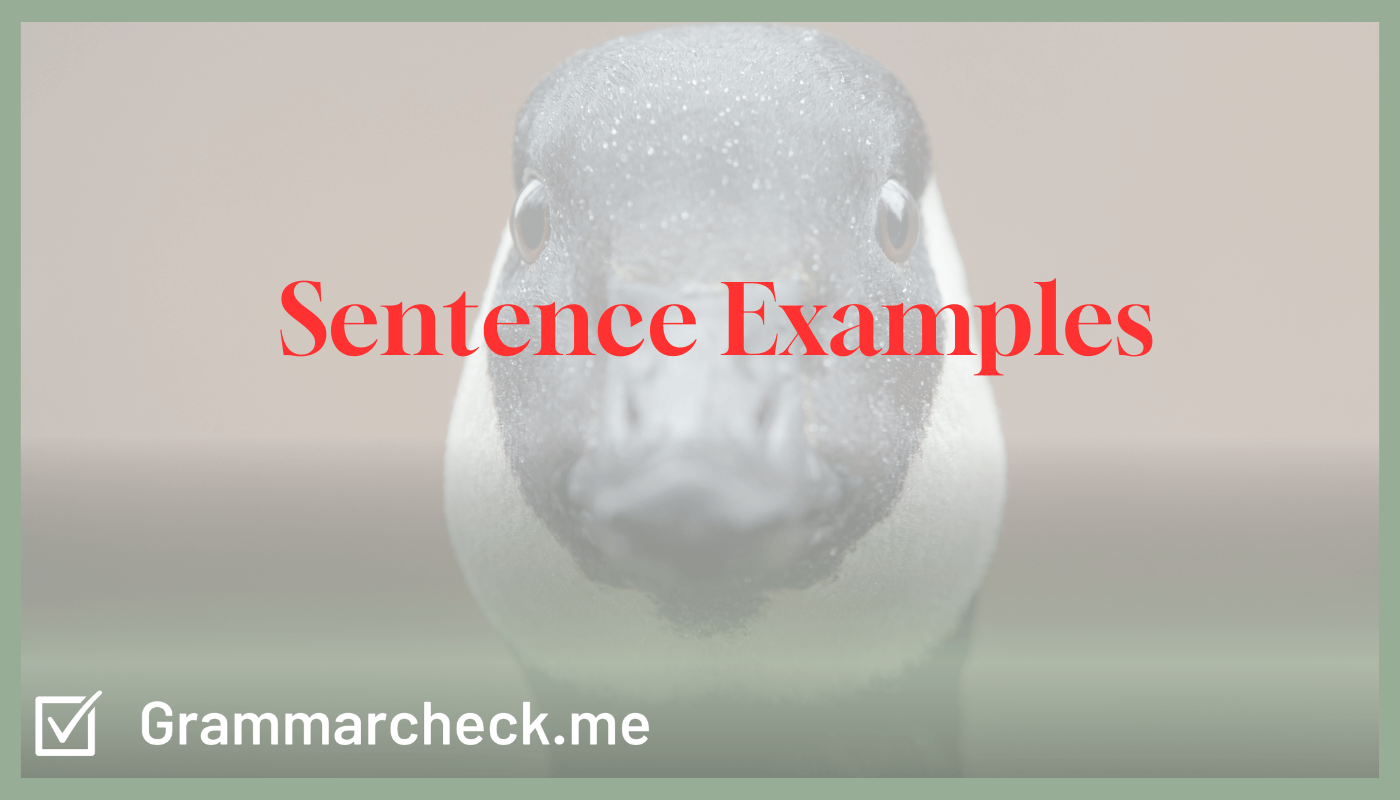The phrase “silly goose” is a light-hearted expression that is used in informal contexts. This saying is most commonly used when speaking specifically with children. It could be interpreted as insulting if the phrase “you silly goose” was used when speaking with older people or in professional settings.
There are many different synonyms for the phrase “silly goose” including “goofball”, “clown”, “joker” that can be used.
In this post, we’ll also explain how to use the expression “silly goose” correctly in a sentence. We’ll also discuss the popularity of this idiom and in what contexts it should not be used.

What Does The Phrase “Silly Goose” Mean?
The phrase “Silly Goose” is an affectionate and light-hearted term used to playfully tease or describe someone who is acting in a goofy or foolish manner. It is an old idiom that has a meaning different than the literal words that comprise the phrase. “Silly goose” is most commonly used in a friendly or endearing way to comment on someone’s personality or identify they are making a humorous mistake.
Here are some contexts when the phrase “silly goose” should be used.
- Speaking among friends
- Conversing with family members
Be sure to consider your tone of voice and relationship with the person you are speaking with then using this expression. It could be considered an insult if said in an aggressive or demeaning tone.
What Is The Origin Of ‘Silly Goose”?
The origin of the phrase “silly goose” first appeared in writing in the The Paradise of Dainty Devices (1576) by Richard Edwards. More specifically, Richard used the line “she crafty Foxe, the seely Goose beguiles.”
Since then, the term goose became synonymous with dumb or stupid. Calling someone a goose became equivalent to calling them unintelligent or simple minded. However, the phrase “silly goose” adopted a more endearing & light-hearted tone over the years. It become less insulting and widely used as one of the many idioms said to children. Just like we saw in our post about the idiom “I am fishing in the dark“, we found that the meaning of these expressions normally change overtime.
Are There Synonyms For “Silly Goose”?
Here is a list of synonyms that can be used for the expression “silly goose”.
- Goofball
- Clown
- Joker
- Numskull
- Ditzy
How Do You Use “Silly Goose” In A Sentence?
Below are 7 example sentences that demonstrate how to use the expression “you silly goose” correctly in your writing.
- When Sarah tried to put on her shoes with her gloves still on, her friend laughed and said, “You’re such a Silly Goose!”
- Mark couldn’t find his car keys even though they were right on the kitchen table. His wife playfully called him a Silly Goose.
- After tripping over his own shoelaces for the third time that day, Tom’s co-worker affectionately teased, “You’re a real Silly Goose, aren’t you?”
- When Emily told a corny joke that made everyone laugh, her friends affectionately declared, “You’re our favorite Silly Goose!”
- Lisa thought the meeting was on Friday when it was actually on Thursday. Her boss chuckled and said, “You’re a real Silly Goose, but we forgive you.”
- As Tim danced around the living room pretending to be a superhero, his little sister giggled and called him a Silly Goose.
- When Alex accidentally put salt instead of sugar in his coffee, his roommate couldn’t help but chuckle and say, “You’re quite the Silly Goose in the morning, aren’t you?”
Just like we saw in our analysis of the saying “may the odds be ever in your favor“, writers need to understand the context in order perfect their word choice.

Popularity Analysis
Google’s ngram data shows that the phrase “silly goose” started appearing in published writing in the 1500s. However, since the late 1970s the saying “you silly goose” has become very popular in different forms of children’s writing. This is likely due to the increase in production of children’s books compared to decades past. However, just like we saw in our analysis of the idiom “If fishes were wishes“, the popularity of certain vocabulary can quickly change!
In What Contexts Should “Silly Goose” Not Be Used?
“Silly Goose” should not be used in formal contexts. This includes academic, scientific, workplace, and other types of professional writing. This is playful and affectionate term that is considered informal. Although “silly goose” is mostly a light-hearted term of endearment, it should only be used in casual settings to avoid potentially teasing or appearing disrespectful.
What Are Common Misspellings Of “Silly Goose”?
Here are 5 common spelling mistakes made by writers trying to use the expression “silly goose”.
- Silly Goos
- Sily Goose
- Silli Goose
- Silly Gose
- Silly Guose
Frequently Asked Questions
No, “Silly Goose” is typically not considered an insult. It’s a light-hearted and affectionate term used to playfully tease or describe someone who is acting in a goofy or foolish manner.
Idioms are generally discouraged in formal contexts, such as business meetings, academic papers, or professional presentations. They can lead to confusion or misinterpretation, as not everyone may be familiar with the specific idiom.
The Bottom Line
By now you should be an expert on the phrase “silly goose”. “Silly goose” is a commonly used idiom that is used to commonly that someone made a silly or genuine mistake. It is not used to literally describe the actions or personality of a goose! Just be sure to understand the context of the situation before using an informal expression like this. If you need more help with grammar and vocabulary rules like this, consider using review grammar tool to make things easy!
